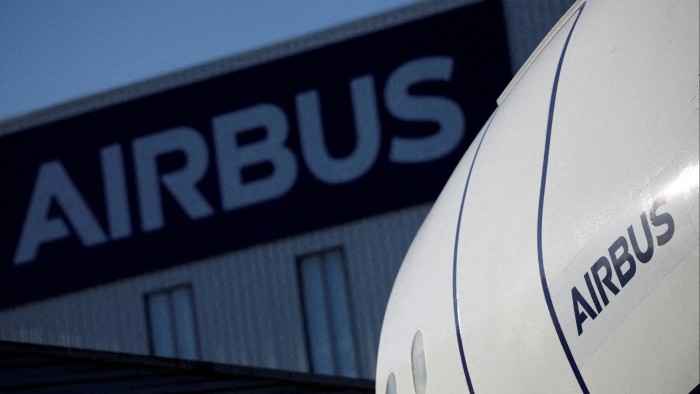Unlock the Editor’s Digest for free
Roula Khalaf, Editor of the FT, selects her favourite stories in this weekly newsletter.
Airbus set a modest aircraft delivery target for 2025 and took an additional charge against its space business as the world’s largest planemaker continued to struggle with supply chain constraints.
The European aerospace and defence group said it would deliver 820 commercial jets in 2025, well below a Barclays forecast of 840-850. The target falls short of a record 863 shipments set in 2019, the last year before the pandemic severely disrupted the aviation industry’s supply chain.
The company reported an adjusted operating profit of €5.35bn for the full year, slightly ahead of consensus analyst forecasts but below 2023’s €5.84bn. Revenues for the year were up 6 per cent to €69.2bn.
“We delivered on our 2024 guidance in what was a testing year for Airbus,” said chief executive Guillaume Faury. “We refocused our efforts on key priorities, notably the production ramp-up and the transformation of Defence and Space.”
Airbus delivered 766 aircraft in 2024 after an end-of-year sprint to meet its delivery target, delivering 123 in December alone and cementing its position as the world’s largest planemaker ahead of US rival Boeing.
The company said on Thursday it was still targeting a monthly production rate of 75 of its best-selling A320 family of narrowbody jets.
However, “specific supply chain challenges” mainly from delays at US supplier Spirit AeroSystems were putting pressure on the production of its widebody A350 aircraft and the A220, it said.
Spirit is in the process of being broken up as part of a takeover by Boeing.
Airbus also announced a further charge of €300mn in the fourth quarter after the company completed an “in-depth technical review of its space programmes”, bringing the total charge for 2024 to €1.3bn for the segment.
The company also recorded an additional charge of €121mn against its A400M military transport aircraft. Airbus warned that in light of “uncertainties” regarding the level of orders, it was “assessing the potential impact on the programme’s manufacturing activities”.
Airbus shares are up 17.3 per cent in the past 12 months, compared with a 8.5 per cent decline for Boeing.
Read the full article here




